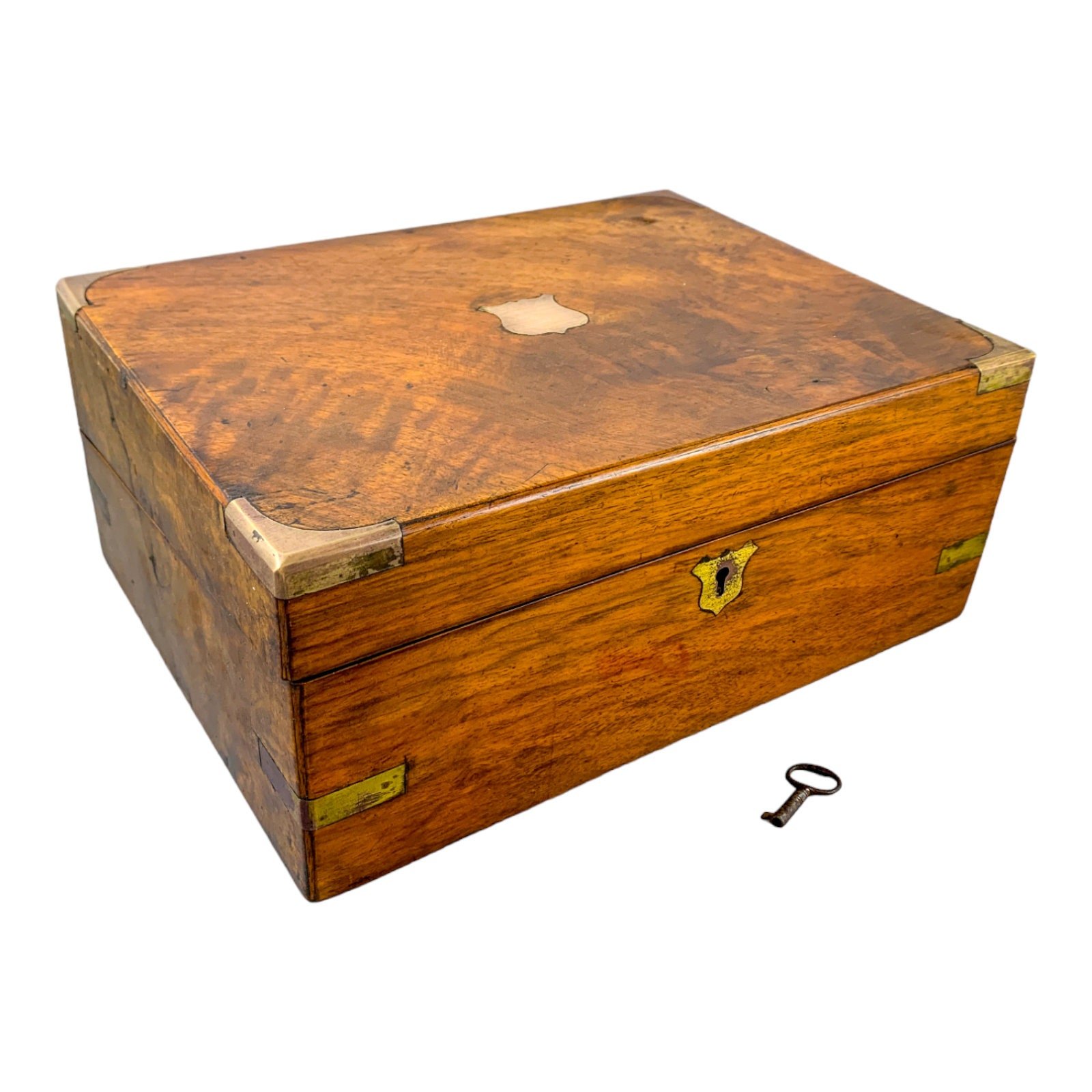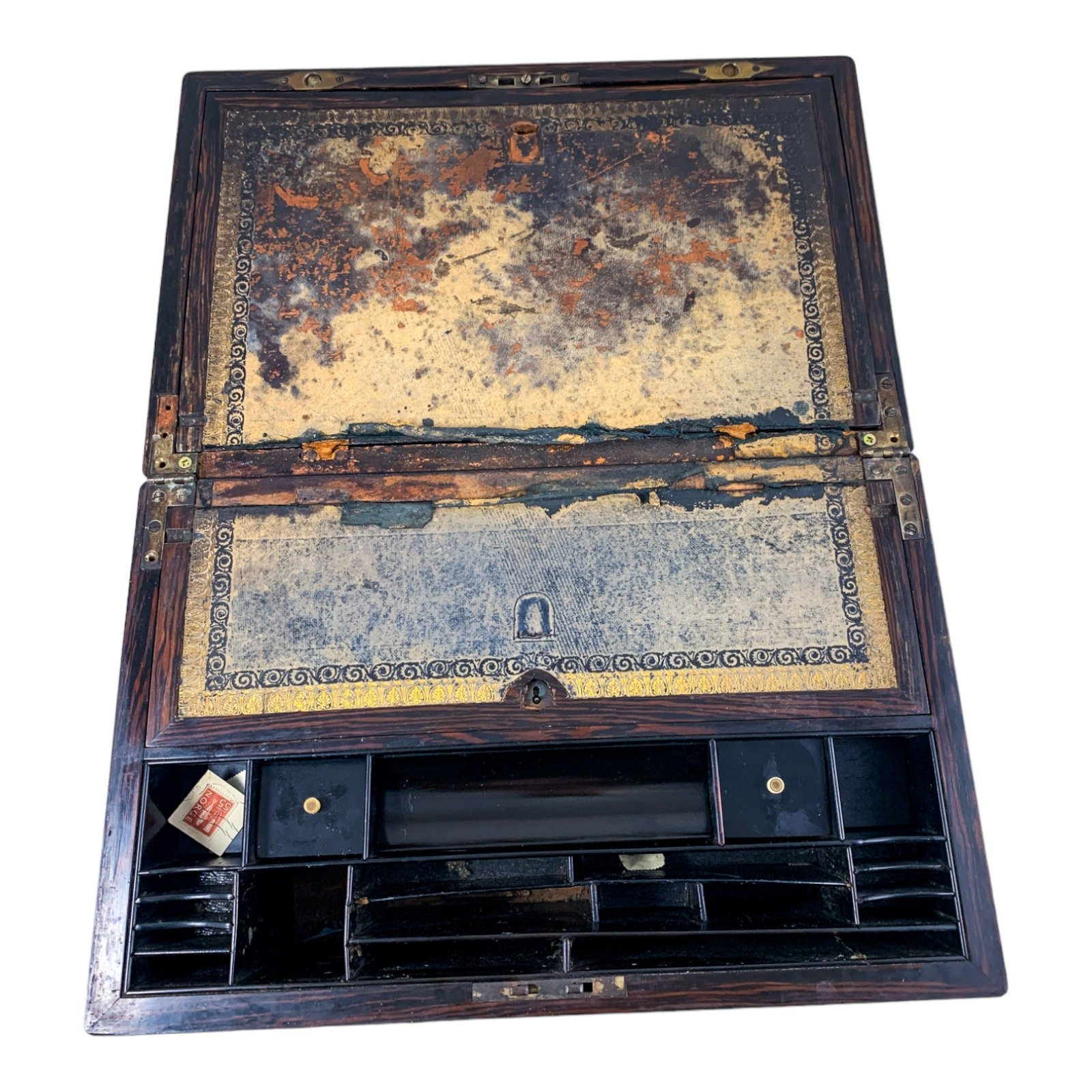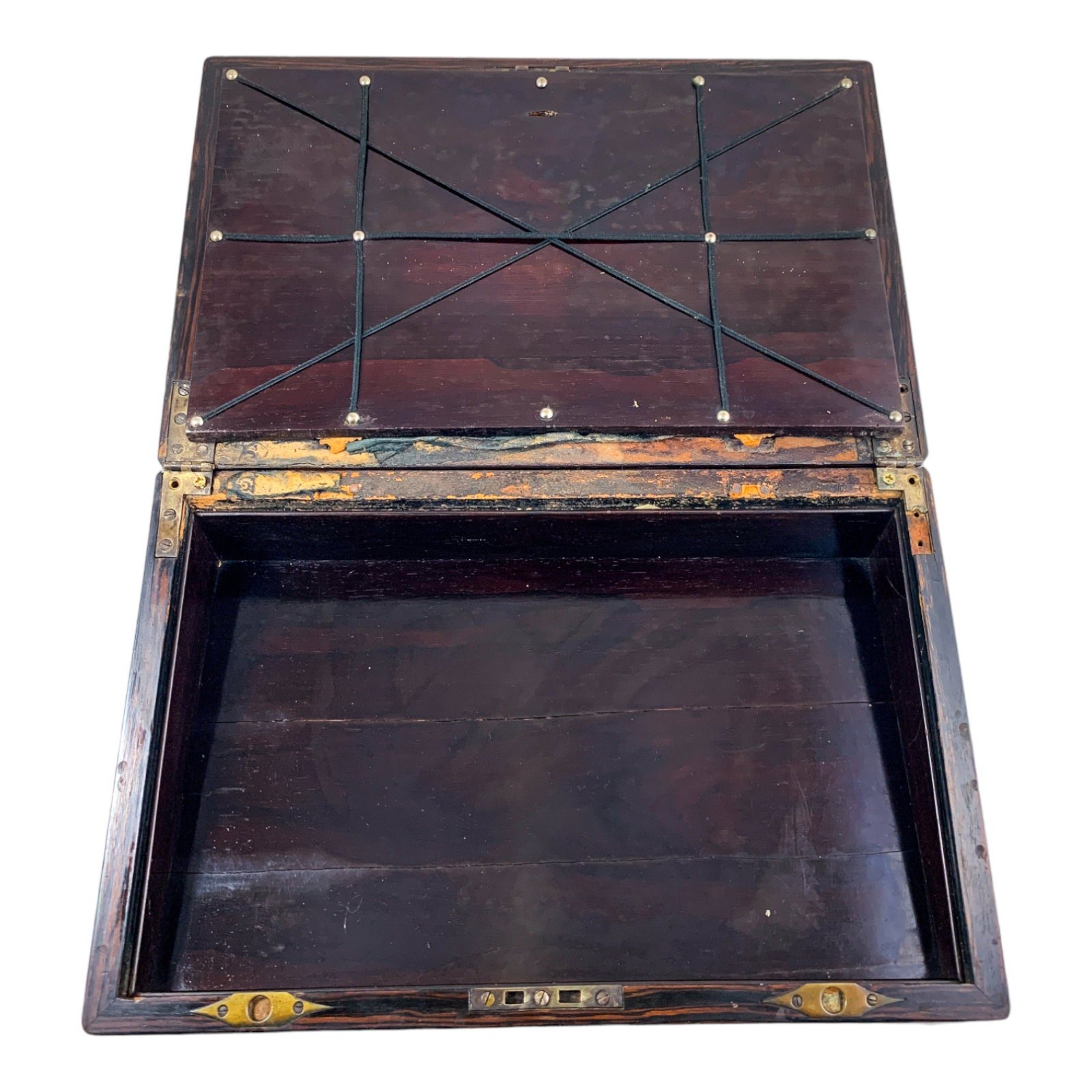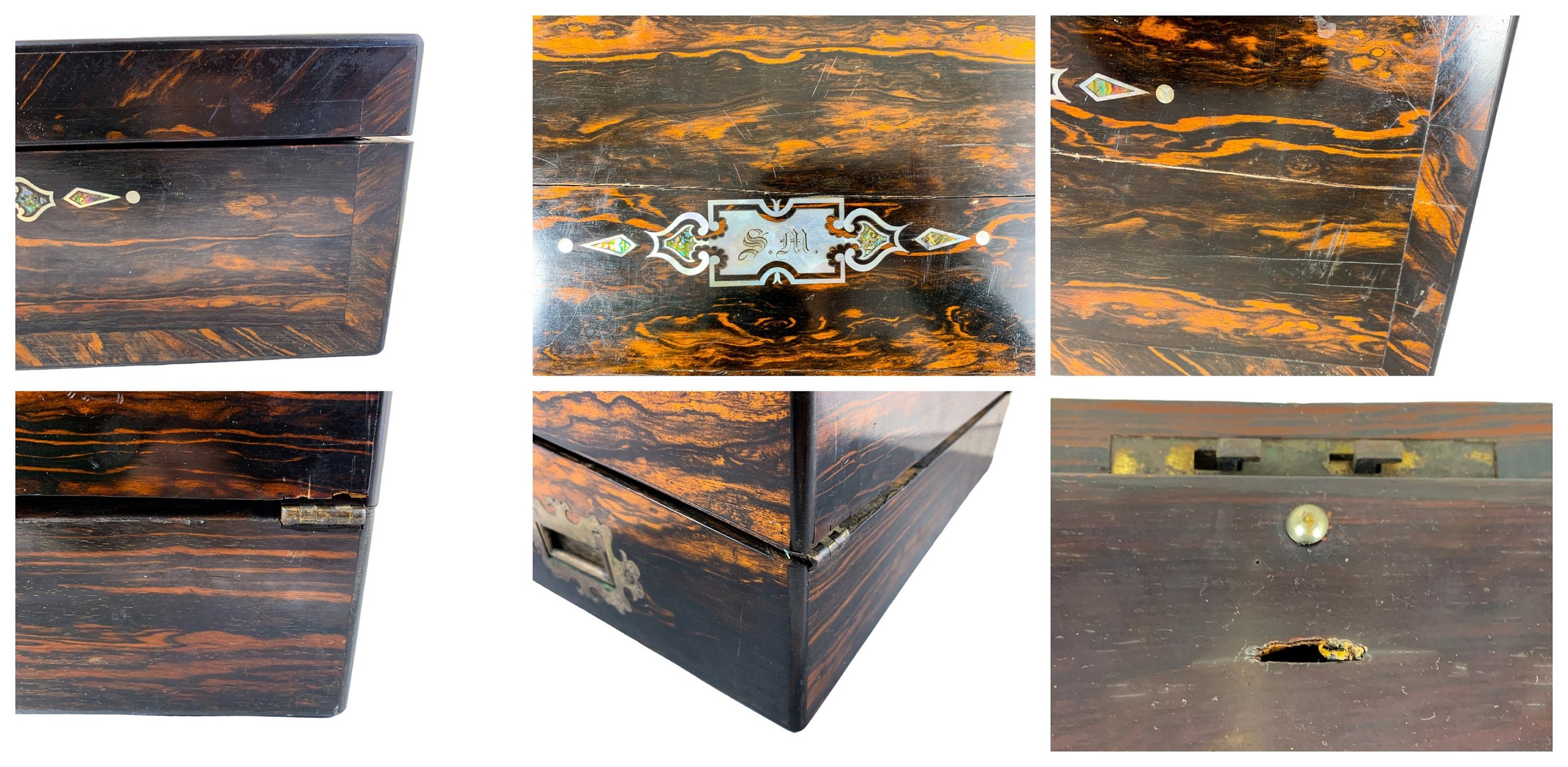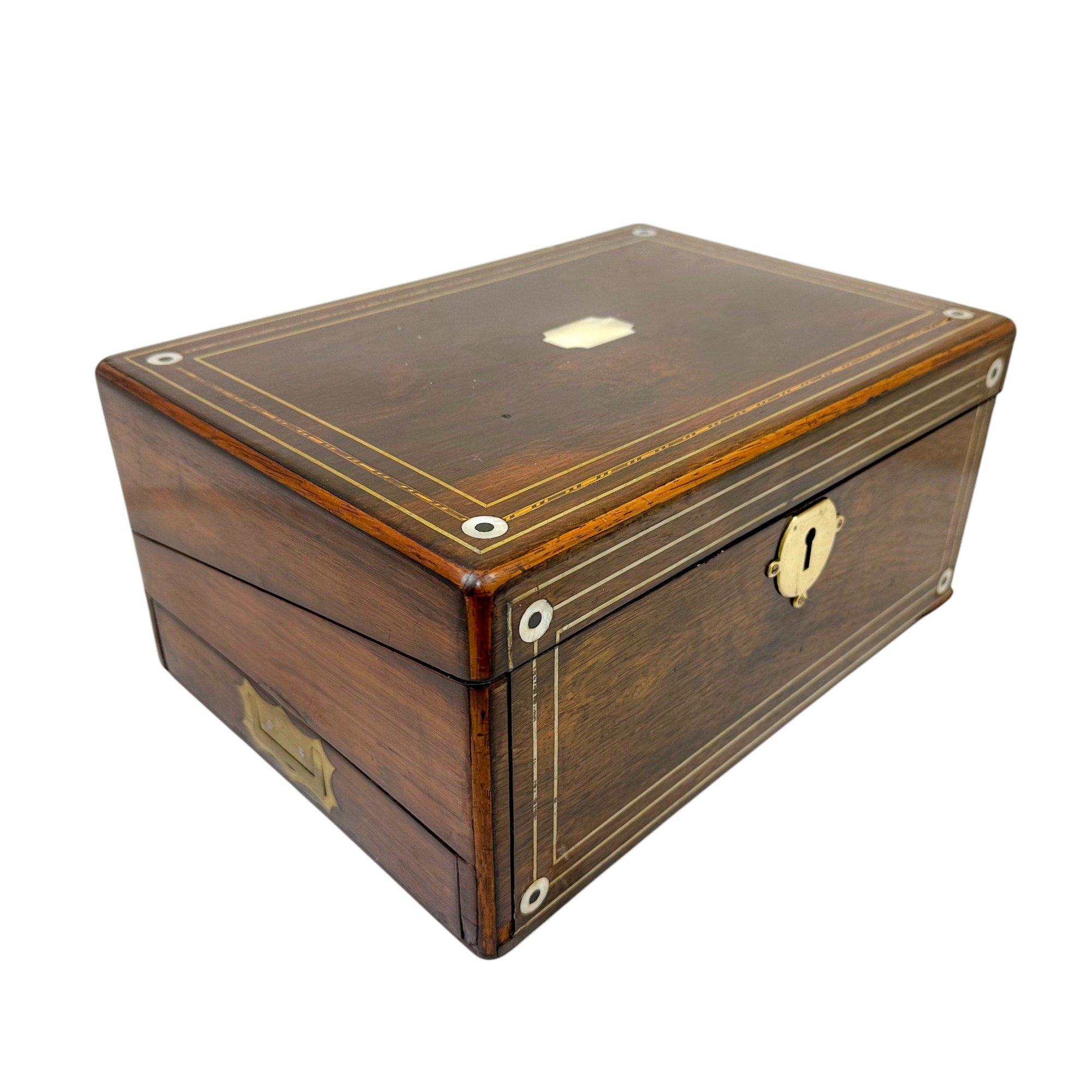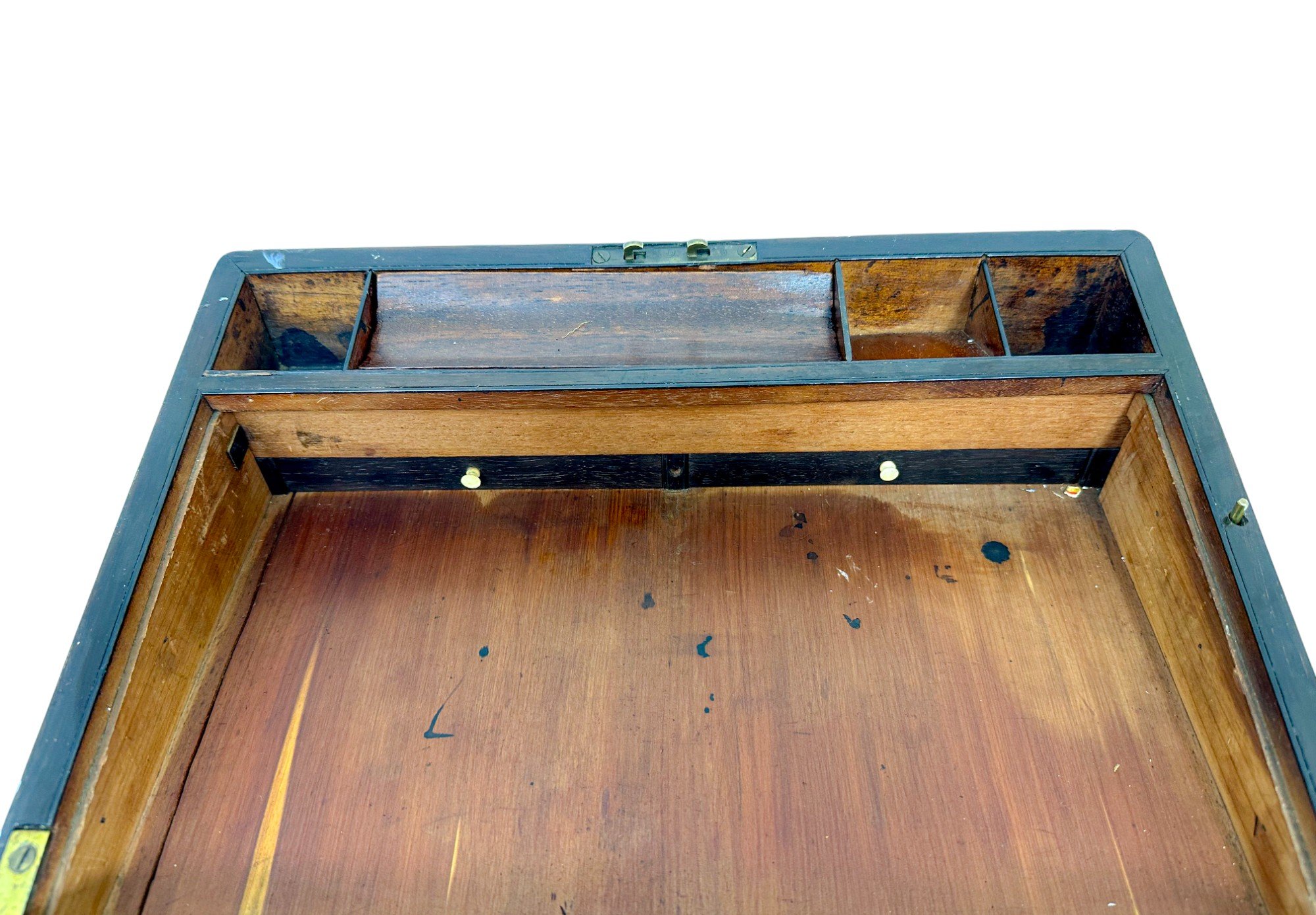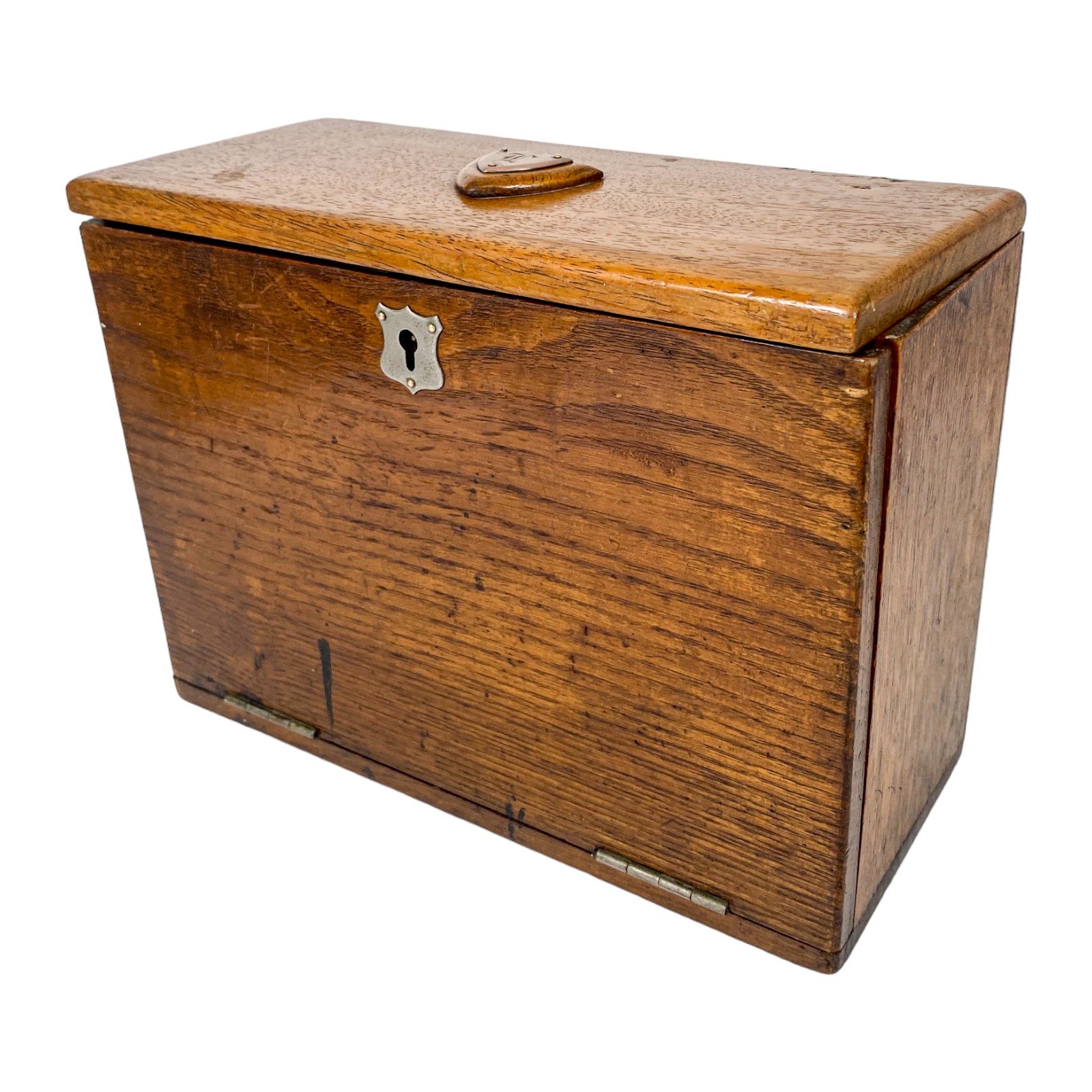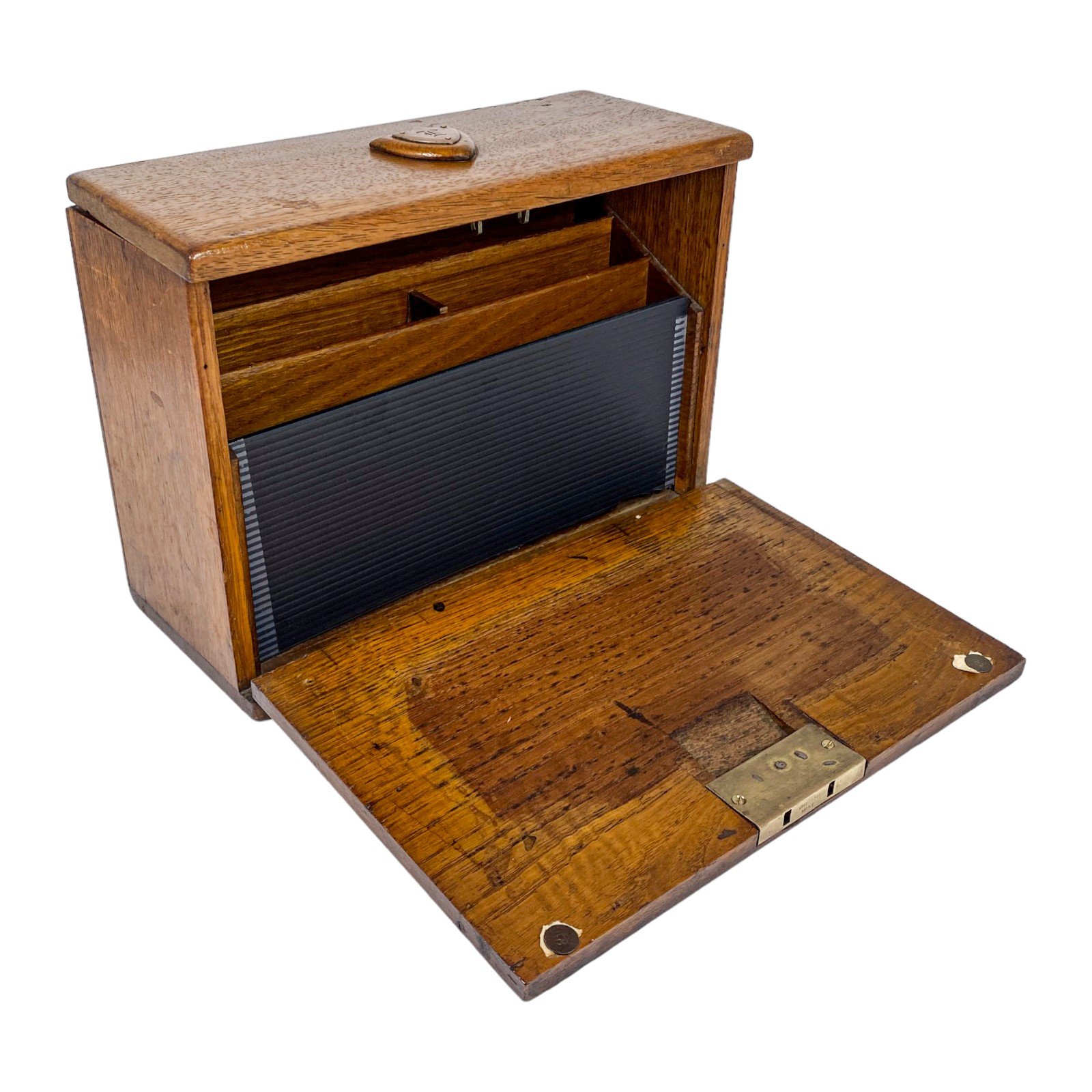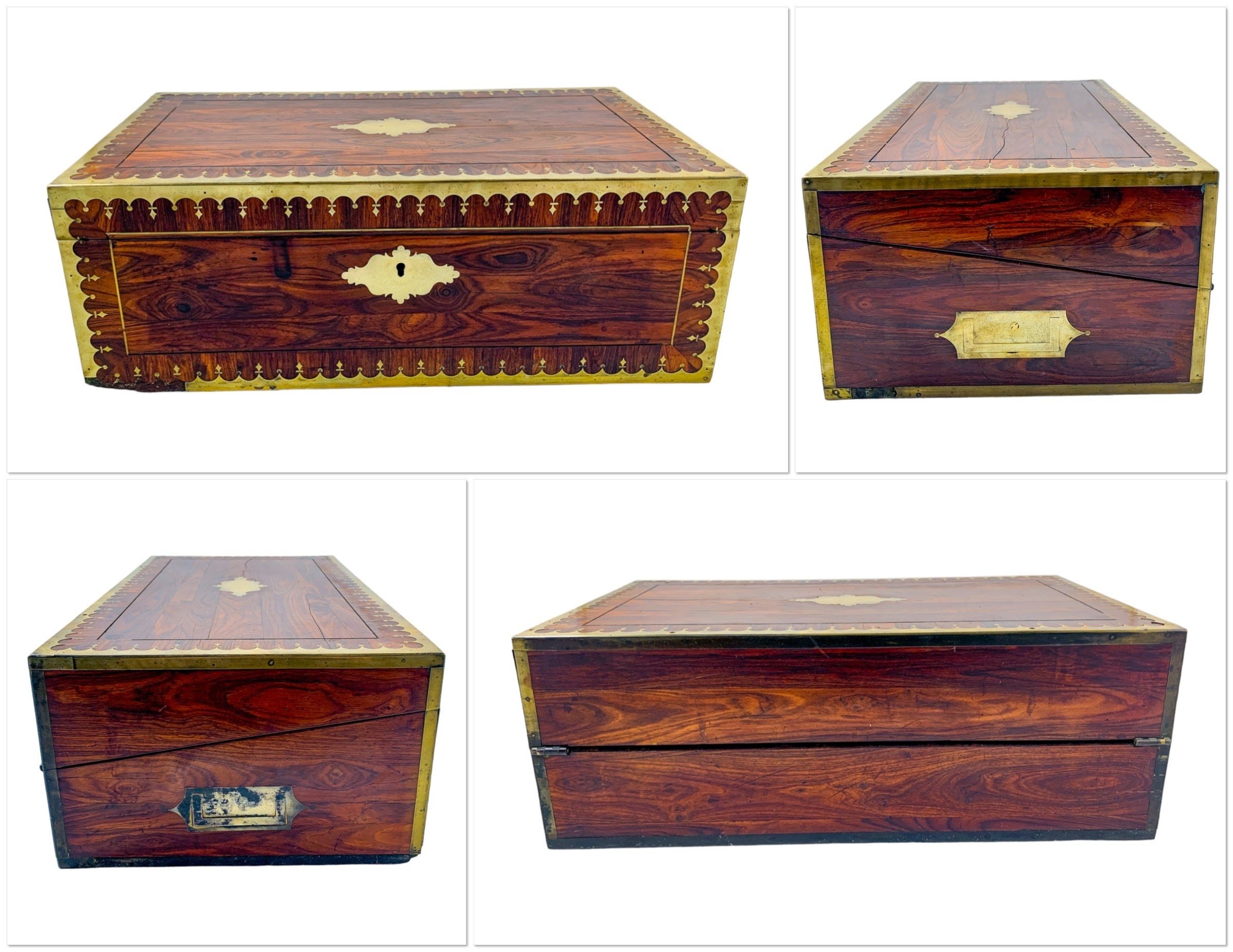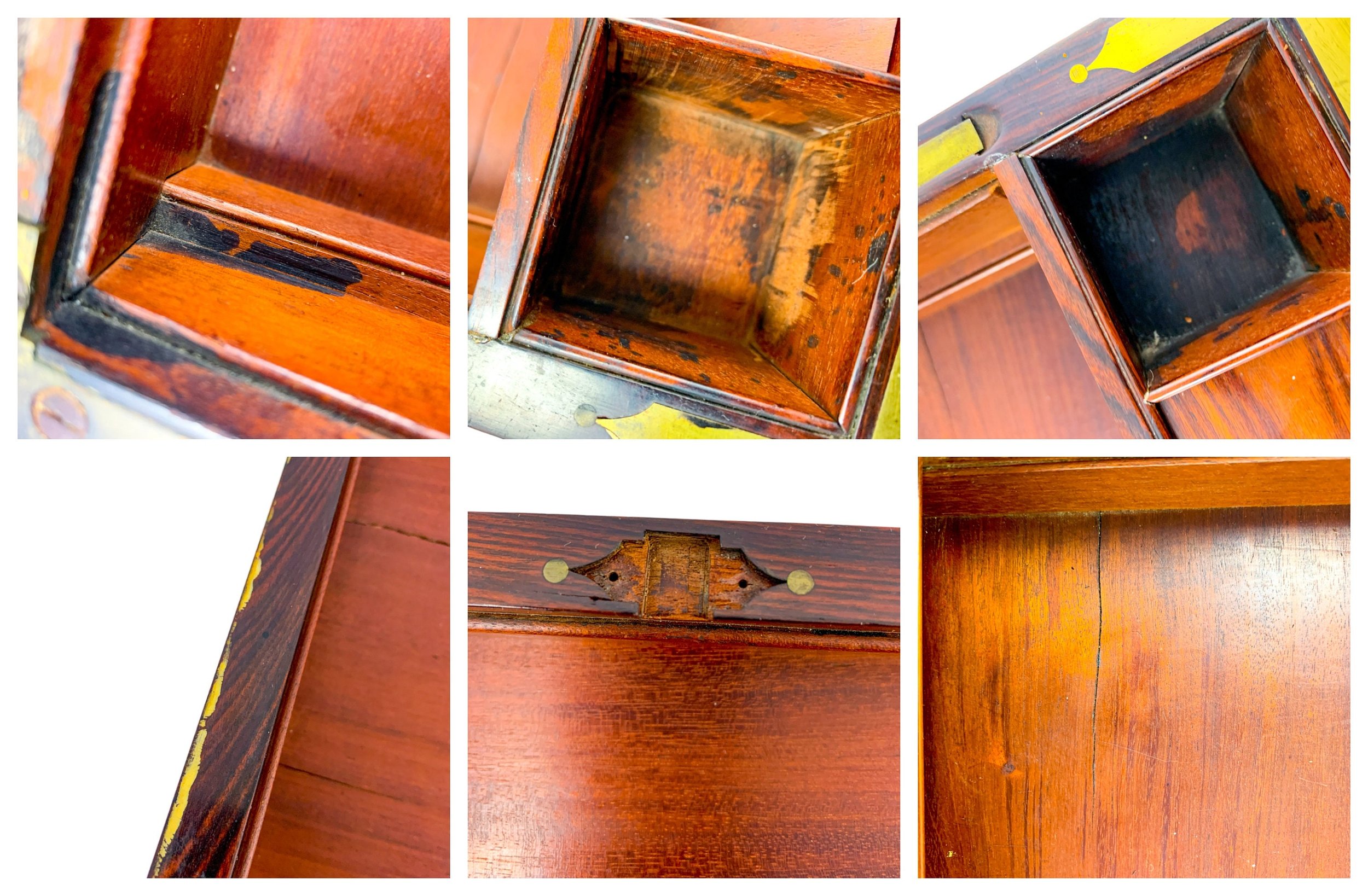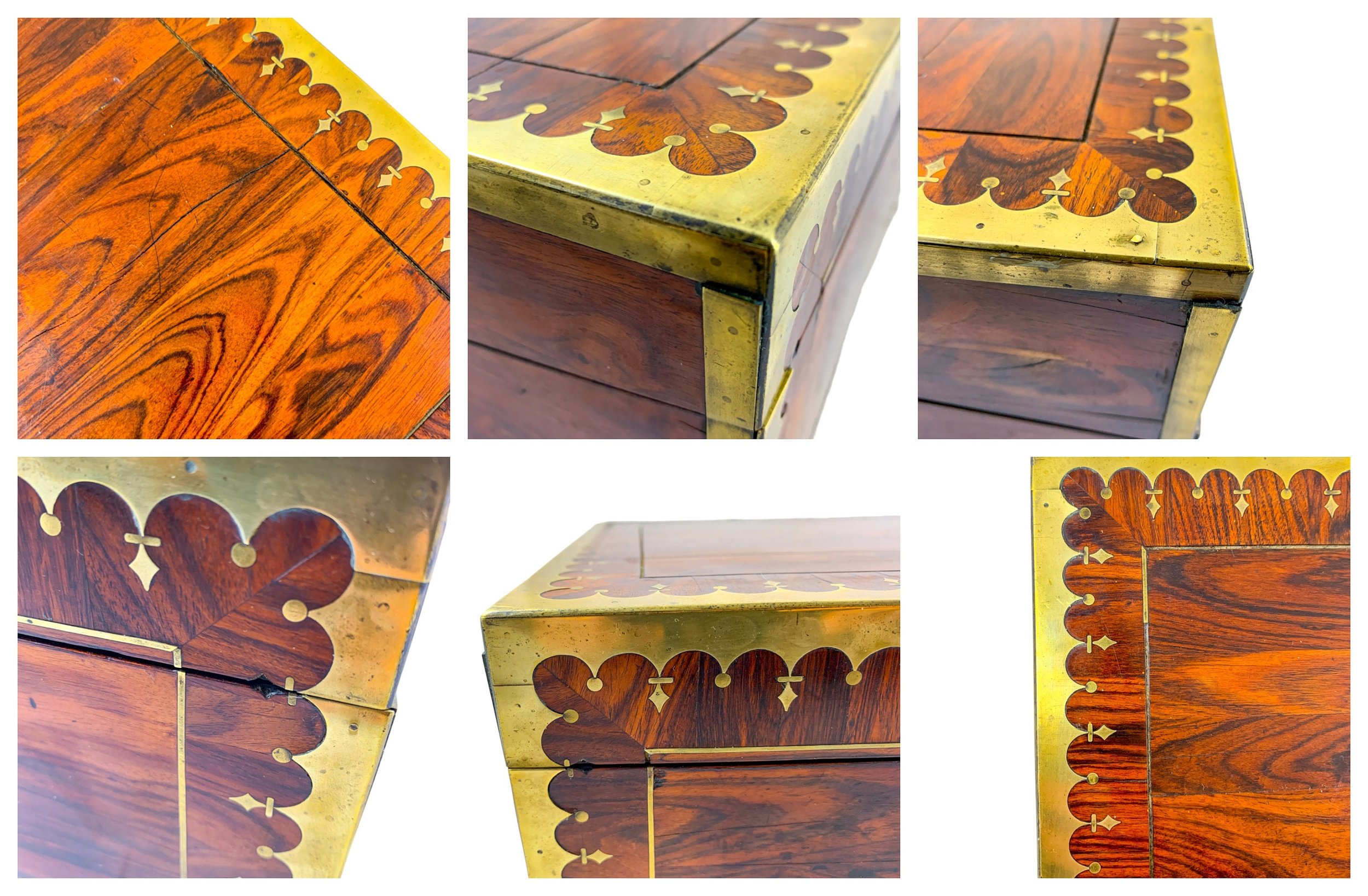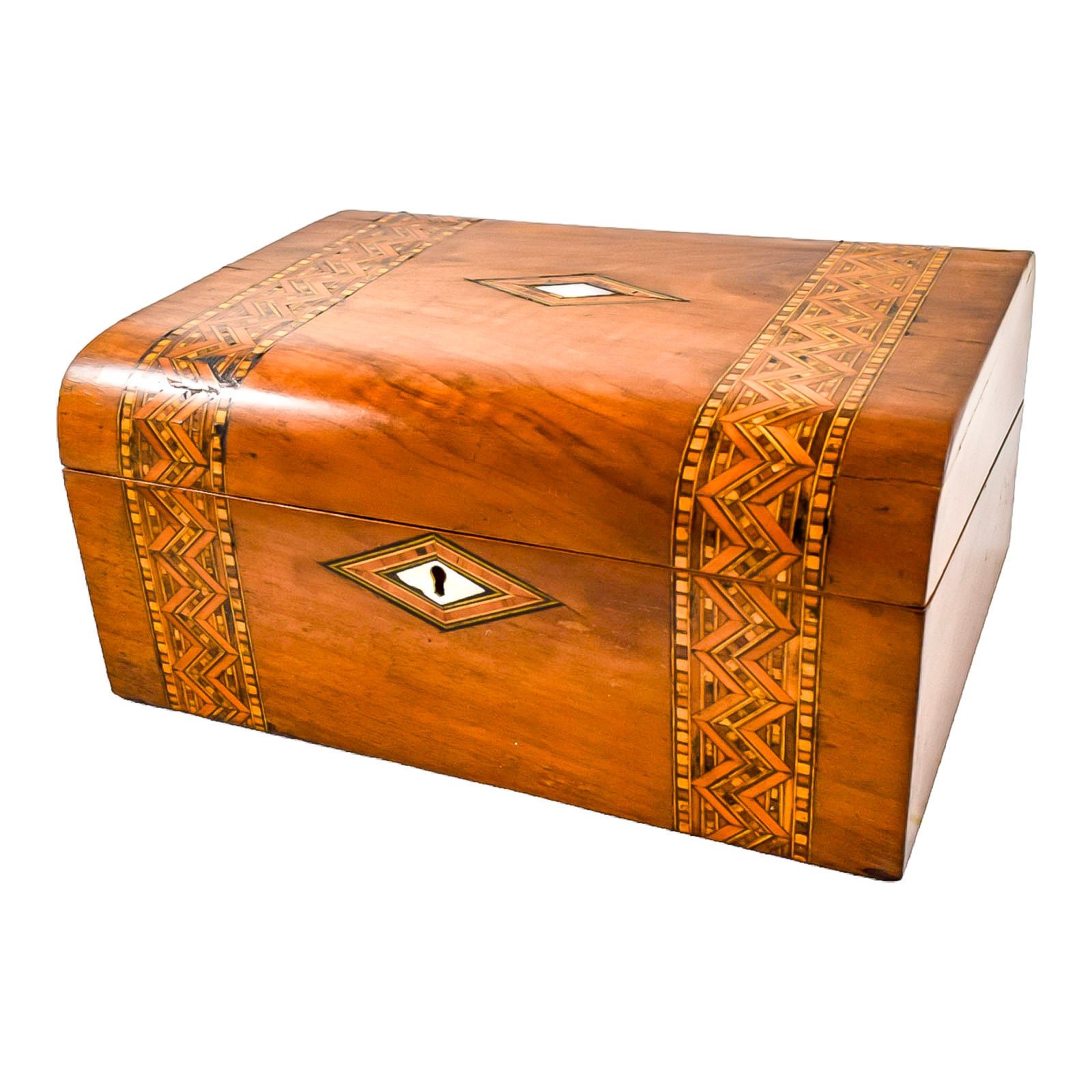 Image 1 of 10
Image 1 of 10

 Image 2 of 10
Image 2 of 10

 Image 3 of 10
Image 3 of 10

 Image 4 of 10
Image 4 of 10

 Image 5 of 10
Image 5 of 10

 Image 6 of 10
Image 6 of 10

 Image 7 of 10
Image 7 of 10

 Image 8 of 10
Image 8 of 10

 Image 9 of 10
Image 9 of 10

 Image 10 of 10
Image 10 of 10











Georgian walnut Tunbridge Ware domed writing slope with mother-of-pearl cartouche and geometric marquetry
Wonderful Georgian Tunbridge Ware writing slope inlaid with intricate geometric bands. The hinged domed lid opens to reveal a fitted writing surface, original pen rest and two inkwell compartments. The slope is lined with purple velvet that is embossed with a scrolling design.
The body of the box is veneered with walnut and the marquetry is done with cross banded boxwood, kingwood and tulipwood among others. The lid has a vacant mother-of-pearl rhombus cartouche that is edged with fruitwood and ebony; the same design is repeated around the key escutcheon.
Very ornate and eye-catching box!
Made in England, c. 1830’s.
1628 g
13.5 x 30 x 22.5 cm - closed
4 - 9.5 cm tall, 30 x 45.5 cm - opened
Very good antique condition. Some crazing and surface cracks to veneer; small loss to nacre at the keyhole; crack to the front right corner of the lid extending to the side; the latch on the inside of the lid that secures the slope is loose and doesn't hold the slope in place; tear to the fold of the writing surface; small chips to the corners of the pen rest.
Wonderful Georgian Tunbridge Ware writing slope inlaid with intricate geometric bands. The hinged domed lid opens to reveal a fitted writing surface, original pen rest and two inkwell compartments. The slope is lined with purple velvet that is embossed with a scrolling design.
The body of the box is veneered with walnut and the marquetry is done with cross banded boxwood, kingwood and tulipwood among others. The lid has a vacant mother-of-pearl rhombus cartouche that is edged with fruitwood and ebony; the same design is repeated around the key escutcheon.
Very ornate and eye-catching box!
Made in England, c. 1830’s.
1628 g
13.5 x 30 x 22.5 cm - closed
4 - 9.5 cm tall, 30 x 45.5 cm - opened
Very good antique condition. Some crazing and surface cracks to veneer; small loss to nacre at the keyhole; crack to the front right corner of the lid extending to the side; the latch on the inside of the lid that secures the slope is loose and doesn't hold the slope in place; tear to the fold of the writing surface; small chips to the corners of the pen rest.
Wonderful Georgian Tunbridge Ware writing slope inlaid with intricate geometric bands. The hinged domed lid opens to reveal a fitted writing surface, original pen rest and two inkwell compartments. The slope is lined with purple velvet that is embossed with a scrolling design.
The body of the box is veneered with walnut and the marquetry is done with cross banded boxwood, kingwood and tulipwood among others. The lid has a vacant mother-of-pearl rhombus cartouche that is edged with fruitwood and ebony; the same design is repeated around the key escutcheon.
Very ornate and eye-catching box!
Made in England, c. 1830’s.
1628 g
13.5 x 30 x 22.5 cm - closed
4 - 9.5 cm tall, 30 x 45.5 cm - opened
Very good antique condition. Some crazing and surface cracks to veneer; small loss to nacre at the keyhole; crack to the front right corner of the lid extending to the side; the latch on the inside of the lid that secures the slope is loose and doesn't hold the slope in place; tear to the fold of the writing surface; small chips to the corners of the pen rest.
Tunbridge ware is a form of decoratively inlaid woodwork, that is characteristic of Tonbridge and the spa town of Royal Tunbridge Wells in Kent in the 18th and 19th centuries. The decoration typically consists of a mosaic of many very small pieces of different coloured woods that form a pictorial vignette. Shaped rods and slivers of wood were first carefully glued together, then cut into many thin slices of identical pictorial veneer with a fine saw. Elaborately striped and feathered bandings for framing were pre-formed in a similar fashion. Many sorts of wood were employed for the various colours; about 40 were in regular use and only natural colours were used.
In the nineteenth century, Tunbridge ware was highly esteemed nationally as well as locally. The young Princess Victoria, a frequent visitor to the town with her mother the Duchess of Kent, used to buy articles of Tunbridge ware as gifts for her family. Today, these beautiful pieces can only be purchased in antique shops, as none have been made on a commercial basis since 1939.


